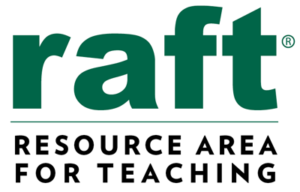RAFT Kits Help Make STEM Learning Accessible in South Sudan
In a country ravaged by war, floods, and famines, Loreto Primary School in South Sudan takes a stand for education using RAFT hands-on learning kits.

In a country where half of its people live below the poverty line and onechild in three is stunted (SS Household Health Survey 2010), education plays a vital role in building a better future. To create a better future, the Loreto Primary School – Maker Kuei (LPS) in Rumbek, South Sudan serves over 600 students, with an emphasis on girls’ education. The school is coeducational and strives to maintain a 1:1 ratio of boys to girls in each grade to promote girls opportunities for education.
South Sudan’s student success in science, technology, engineering and mathematics (STEM) subjects has been stymied by a lack of practical experiences and a high student:teacher ratio. This has resulted in poor academic performance and a correlated lack of interest in these subjects.
Candacia Greeman, serves as the STEM Projects Coordinator at LPS. She recently lead a month long in-service training for 20 teachers using Resource Area for Teaching (RAFT) science and mathematics kits.
 “Our teachers love the kits! We especially like that they re-purpose “everyday” or “easy to source” items. The market in Rumbek is very limited and there is no postal system in South Sudan, so it is usually hard to replace items or expand when using other science kits. The RAFT kits help solve this issue and they have also given us some ideas for creating our own science kits. I love that the 10 packs are so light weight because I have to fetch all the kits as luggage when I fly to South Sudan. This is the safest and most efficient way to get them to our school,” said Greeman.
“Our teachers love the kits! We especially like that they re-purpose “everyday” or “easy to source” items. The market in Rumbek is very limited and there is no postal system in South Sudan, so it is usually hard to replace items or expand when using other science kits. The RAFT kits help solve this issue and they have also given us some ideas for creating our own science kits. I love that the 10 packs are so light weight because I have to fetch all the kits as luggage when I fly to South Sudan. This is the safest and most efficient way to get them to our school,” said Greeman.
According to UNESCO’s “Education for All Global Monitoring Report” in 2011, young girls in South Sudan face extreme disadvantages in education, are less likely to enter school, and are more likely to drop out. Today, a young girl in South Sudan is three times more likely to die in pregnancy or childbirth than to reach the eighth grade. More than 1.3 million school aged children are not enrolled in school and fewer than 50 percent of those enrolled actually complete their primary education. In fact, a child in South Sudan is more likely to die before age five than s/he is to attain a basic education. Not only is there limited access to primary education, but the quality of education is poor. Most teachers are untrained with a national ratio of 100:1 for students to trained teachers. This ratio is even higher for primary schools in rural regions like Rumbek. Many schools lack basic infrastructure and students are taught outdoors under trees, with poor access to water and sanitary facilities.
In an effort to address these social concerns, LPS has undertaken projects that focus on experiential modes of learning STEM subjects. The teachers feel that RAFT kits are fun to use and will serve as useful teaching aids during the academic year. The RAFT Solar Jitterbug kit was especially well received by the teachers because as one teacher said, “It uses renewable energy and shows how solar energy can be converted to electrical energy.” Another teacher commented, “For example, if teaching a topic, let’s say ‘wind,’ I may build a wind vane with my pupils that they can see it properly.”
LPS teachers also found the RAFT mathematics manipulative kits; Polygon Pursuit, Area Antics, and Tic Tac Trouble to be very useful, as “they are done practically” and can be easily understood by students. The kits even inspired the teachers to brainstorm card games of their own for teaching number operations.
to be very useful, as “they are done practically” and can be easily understood by students. The kits even inspired the teachers to brainstorm card games of their own for teaching number operations.
Greeman has been living and working at LPS for over a year. She adds, “I am very glad that our teachers have responded so well to the kits since it will ensure that our science programs are sustained after I leave.”
To learn more about Loreto schools, please visit http://www.loretoschoolsnetwork.ie/rumbek-south-sudan/ or email loretoschoolsrumbek@gmail.com.
STEM education development projects at Loreto Primary School are supported by the Ella Lyman Cabot Trust, McCarthey Dressman Education Foundation, Optical Society of America, Youth Learning as Citizen Environmental Scientists and Mennonite Central Committee.
About Resource Area for Teaching
RAFT believes the best way to spark the love of learning for the next generation of thinkers, innovators, problem-solvers, and creators, is through hands-on learning. A nonprofit organization since 1994, RAFT supports over 10,000 educators each year who teach over 835,000 students. Find out more about RAFT and how to get involved at http://www.raft.729solutions.com
